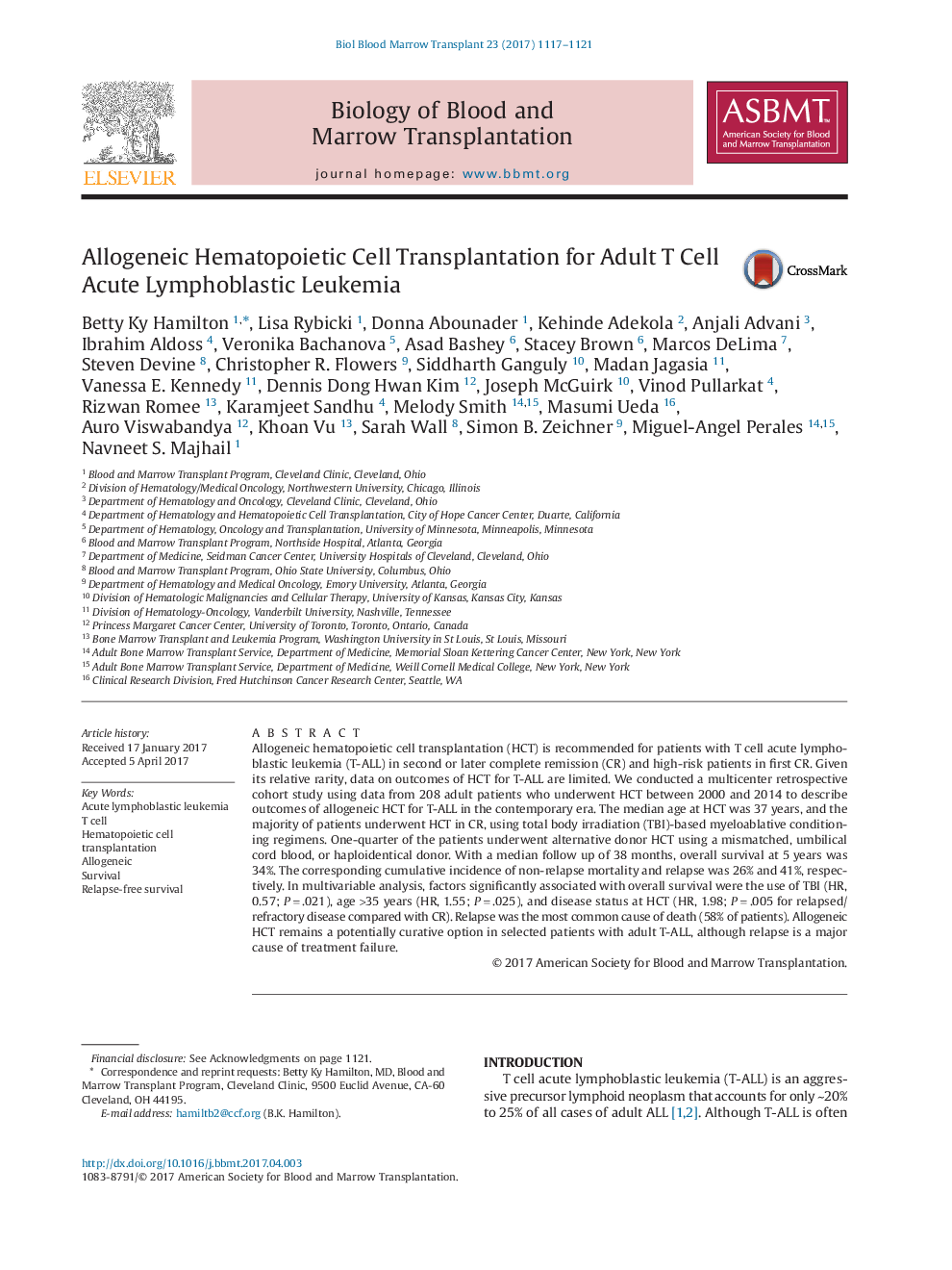| Article ID | Journal | Published Year | Pages | File Type |
|---|---|---|---|---|
| 5524347 | Biology of Blood and Marrow Transplantation | 2017 | 5 Pages |
â¢Contemporary data on outcomes of allogeneic hematopoietic cell transplant (HCT) for T cell acute lymphoblastic leukemia (T-ALL) are limited.â¢Overall survival after HCT at 5 years for T-ALL was 34%. The corresponding cumulative incidences of nonrelapse mortality and relapse were 26% and 41%, respectively.â¢In multivariable analysis, factors significantly associated with overall survival were the use of total body irradiation (hazard ratio [HR], 0.57; Pâ=â.02); age >35 years (HR, 1.55; Pâ=â.025), and relapsed/refractory disease status at transplantation (HR, 1.98; Pâ=â.005).â¢Allogeneic HCT remains a potentially curative option in selected patients with T-ALL; however, relapse remains the major cause of treatment failure.
Allogeneic hematopoietic cell transplantation (HCT) is recommended for patients with T cell acute lymphoblastic leukemia (T-ALL) in second or later complete remission (CR) and high-risk patients in first CR. Given its relative rarity, data on outcomes of HCT for T-ALL are limited. We conducted a multicenter retrospective cohort study using data from 208 adult patients who underwent HCT between 2000 and 2014 to describe outcomes of allogeneic HCT for T-ALL in the contemporary era. The median age at HCT was 37 years, and the majority of patients underwent HCT in CR, using total body irradiation (TBI)-based myeloablative conditioning regimens. One-quarter of the patients underwent alternative donor HCT using a mismatched, umbilical cord blood, or haploidentical donor. With a median follow up of 38 months, overall survival at 5 years was 34%. The corresponding cumulative incidence of non-relapse mortality and relapse was 26% and 41%, respectively. In multivariable analysis, factors significantly associated with overall survival were the use of TBI (HR, 0.57; Pâ=â.021), age >35 years (HR, 1.55; Pâ=â.025), and disease status at HCT (HR, 1.98; Pâ=â.005 for relapsed/refractory disease compared with CR). Relapse was the most common cause of death (58% of patients). Allogeneic HCT remains a potentially curative option in selected patients with adult T-ALL, although relapse is a major cause of treatment failure.
